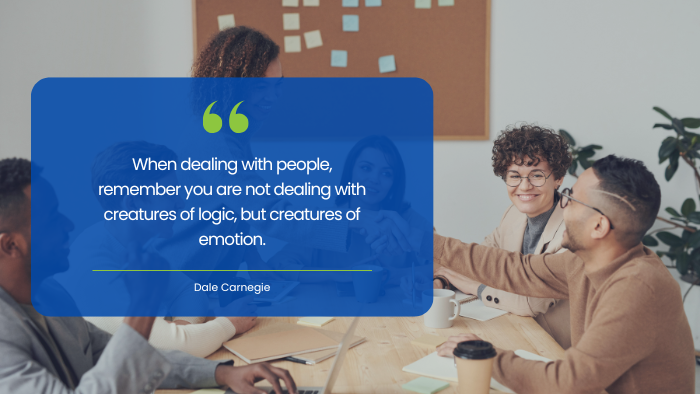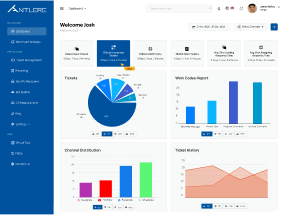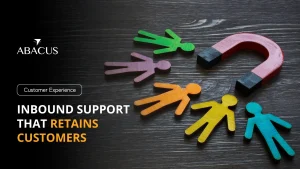What Is Customer Relations and How It Can Transform Your Business?
Companies like Amazon, Starbucks, and Disney stand apart because of their consistently stellar customer experience. These brands focus on offering more than customers expect, which helps them build strong and lasting customer relations. Their success clearly shows that emotional connection and experience-driven engagement play a major role in long-term business growth.
“When dealing with people, remember you are not dealing with creatures of logic, but creatures of emotion.”
Today’s customers have greater control over their choices than ever before. Social media allows them to openly express satisfaction or dissatisfaction, making it essential for brands to exceed expectations and build memorable customer relations in this customer-centric environment.

What Is Customer Relations?
Customer relations refer to the processes, strategies, and techniques a brand uses to create and maintain customer relationships. It reflects how a brand engages with customers, helps them overcome challenges, and develops long-term solutions for customer success.
When managed effectively, customer relations lead to stronger customer relationships, higher customer lifetime value (CLV), and improved customer retention — all critical factors for sustainable business success.
How Is Customer Relations Different from Customer Service?
Customer service is a reactive function focused on resolving customer issues after they interact with a brand. It plays an important role in improving customer experience and handling real-time concerns throughout the sales funnel.
Customer relations, on the other hand, take a proactive approach. Instead of reacting to problems, businesses anticipate customer needs and optimize the experience from the very first point of interest. While the customer is not always right, customer service and customer relations work together to create a consistent and memorable customer experience.
What Are the Benefits of Building Positive Customer Relations?
Building strong customer relations is one of the most powerful drivers of business growth. Businesses that prioritize customer relations benefit in the following ways:
- Higher profitability: Companies that focus on customer relations see up to 60% higher profits, directly contributing to long-term financial growth.
- Improved customer retention: A 5% increase in customer retention can boost profits by 25% to 95%, highlighting the long-term value of strong customer relationships.
- Stronger customer loyalty: 93% of consumers are more likely to remain loyal to brands that consistently deliver stellar customer service.
- Sustainable business growth: Long-term customer relations help businesses build stability, reduce churn, and maintain consistent revenue over time.
How Do Positive Customer Relations Improve Customer Retention?
Organizations that focus on customer relation management often achieve higher retention rates. Apple is a strong example, as its in-store experience and Genius Bar support have helped the brand maintain a 90% retention rate among iPhone customers.
Transparency, trust, and consistent engagement play a key role in keeping customers loyal over time and maintaining genuine long-term interest in the brand.
How Do Customer Relations Increase Customer Loyalty?
Loyal customers are a major revenue driver, generating 40% of a company’s revenue despite representing only 20% of the customer base. Strong customer relations help businesses build emotional connections that reduce sensitivity to price and convenience.
Although investing in customer relations may appear costly, the long-term value of a loyal customer base makes it one of the most rewarding business investments.
How Does Customer Relations Enhance Customer Feedback?
Brands that prioritize client relations create an environment where customers feel comfortable sharing feedback. A strong customer feedback loop improves internal operations and supports continuous improvement.
Research shows that a satisfying customer experience has a greater influence on buying decisions than advertising, making customer feedback and satisfaction critical components of successful customer relations.
How Can Strong Customer Relations Create a Competitive Advantage?
In highly competitive markets, strong customer relations help brands stand out. Customers are often willing to pay more for better service, with 86% of consumers stating they would pay a premium for an exceptional experience.
By building a unique brand identity through superior customer relations, businesses increase the likelihood that customers will choose them over competitors.

How Do Customer Relations Improve Employee Engagement?
Positive customer relations also impact internal teams. When customer satisfaction is a core value, employees feel more connected to the brand’s mission and take pride in their work.
Companies like Ritz-Carlton empower employees to go above and beyond for customers, fostering accountability, motivation, and satisfaction through their “Ladies and Gentlemen” philosophy, which treats both employees and customers with equal respect.
Why Are Strong Customer Relations the Key to Business Growth?
Strong customer relations form the foundation of long-term business success. Through loyalty, feedback loops, employee engagement, and exceptional customer experience, brands like Amazon, Apple, and Ritz-Carlton demonstrate the lasting value of investing in customer relations.
How Can Abacus Outsourcing Help Improve Customer Relations?
Abacus BPO supports businesses by strengthening customer relations through proactive engagement and seamless support. By focusing on customer relations management, Abacus helps companies exceed customer expectations and build long-lasting customer relationships that drive growth.
FAQ's
Customer Relationship Management (CRM) is a strategy and set of tools businesses use to manage customer interactions, improve relationships, and boost satisfaction and retention. It helps companies track customer data, streamline communication, and enhance overall customer experience.
Prioritizing your customer relations creates a culture where your team members feel connected, empowered, and motivated to the brand's ideology, leading to improved job satisfaction and engagement.
Brands can elevate their growth by improving customer satisfaction and building loyalty. Good customer relations can increase customer lifetime value and elevate retention rates – driving lasting company growth.
Customer relations can adapt by consistently gathering and evaluating feedback to identify the changes in customer preferences. Companies must remain flexible and modify their offerings and strategies according to customer expectations and emerging trends.
Technology helps in automation of processes, facilitating communication, and personalizing interactions. Customer relation management systems organize customer data, and tools like analytics and chatbots help create real-time support and tailored experiences.









